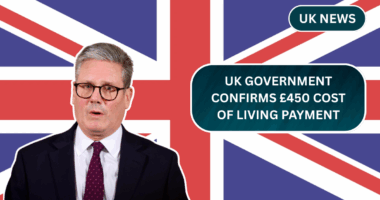The Labour Party has taken a big step back on its earlier stance about disability benefits, causing a lot of confusion and concern among those who rely on them. After facing criticism for their unclear messaging, Labour has now made it clear that Personal Independence Payment (PIP) will not be scrapped if they come to power.
But the sudden change in position has left many wondering—what was said, what has changed, and what does it mean for you?
Let’s break it down in simple terms.
What Happened First?
Earlier this week, Labour’s Shadow Work and Pensions Secretary Liz Kendall gave an interview that caused panic among many disabled people and benefit claimants. She spoke about plans to reform disability benefits, specifically PIP.
While she did not say it directly, her words made it seem like Labour might support some of the changes the current Conservative government is planning—including possibly replacing cash payments with vouchers or restricting eligibility.
This led to a massive backlash. Many disability rights campaigners, organisations, and everyday claimants raised strong objections. Some said Labour was copying the Conservative playbook, which is known for cutting back on welfare.
What Did Labour Say After the Backlash?
After public anger grew, Labour quickly tried to calm things down. A spokesperson clarified the party’s position and said Labour would not scrap PIP or follow through with the Conservative-led proposals from the Department for Work and Pensions (DWP).
Instead, they claimed their focus was on improving the system to make it fairer and easier to access, not on cutting support or replacing payments with vouchers.
This reversal is being seen as a major U-turn and has raised questions about how committed Labour really is to protecting disabled people’s rights.
Why Are People Worried?
Even though Labour has said they won’t scrap PIP, the fact that their top leaders seemed to entertain the idea at all has created mistrust. For many disabled people, benefits like PIP are not luxuries—they are essential for living a basic life with dignity. They help with costs related to mobility, care, and independence.
When political parties send mixed signals, it creates fear that benefits could be changed, reduced, or removed altogether—especially during tough economic times when the government is looking for ways to cut costs.
What Is Labour Promising Now?
Labour has now committed to a few clear things:
- They will not scrap PIP.
- They are against replacing cash support with vouchers.
- They want to review the assessment process so that it’s less stressful and more transparent.
- They say any changes would be made in consultation with disability groups.
Labour has also admitted that claimants currently feel “huge anxiety” due to constant threats to their support—and they say they want to fix that.
What Do Experts and Campaigners Say?
While many welcome Labour’s clarification, some still feel the damage has been done. Groups like Disability Rights UK say this shows the importance of clear communication and involving disabled people in policy decisions from the start—not just after a backlash.
Some campaigners are also warning that even talking about cutting benefits in the current climate—where disabled people already feel targeted—is deeply harmful.
What Should You Do as a Claimant?
For now, nothing is changing. If you are on PIP or another disability benefit, your support continues as normal. No policies have changed yet, and Labour is not currently in government.
However, this situation shows how important it is to stay informed, raise your voice, and hold political leaders accountable for what they say.
If you feel anxious or unsure, you can:
- Follow updates from trusted disability rights organisations.
- Read official statements directly from party websites.
- Contact your local MP or councillor to share your concerns.
Final Thoughts
This whole episode highlights how sensitive and serious benefit reform discussions are. When political leaders make vague or unclear statements, it causes real harm—especially for people who already feel vulnerable.
Labour’s fast U-turn may have avoided further outrage for now, but it’s a reminder that words matter. Disabled people deserve clarity, respect, and policies that put their dignity first—not political games.
Grant Wilkinson is a content editor at The Landscape Insight, where he helps to produce engaging and informative articles about the industry. With a keen eye for detail and a passion for quality, Grant works closely with a team of writers and designers to bring the latest news and insights to readers. You can reach Grant at – [email protected] or on Our website Contact Us Page.








